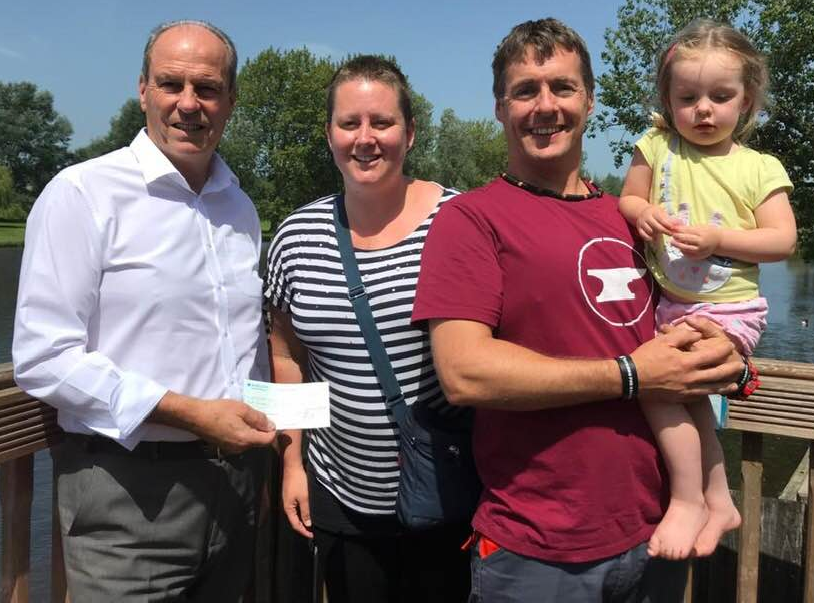In November 2015, Lynnette and Alexis Ellison received quite possibly the worst news any parents could receive. Their joyful, happy and beautiful 3-year old son, Samson, was diagnosed with an incurable/terminal condition: Duchenne Muscular Dystrophy (DMD).
Since then, Lynnette and Alexis have spent a substantial amount of time raising money for Action Duchenne, a registered UK charity dedicated to finding a cure or treatments for Duchenne MD while improving the lives of everyone affected by the condition. The charity funds cutting-edge research, campaigns for better care, and runs vital projects for the community.
Upon hearing of Samson's condition, the members of Euston Lodge No. 2283, which is based in St Neots, were most pleased to donate £400 in support of the Ellison family's Strong For Samson appeal, which supports Action Duchenne.
WBro Steve Barrett ProvGStwd, Euston Lodge's Director of Ceremonies and Membership Officer, was thrilled to be able to catch-up with Lynette and Alexis and present them with the donation.
WBro Steve Barrett (left) presenting the cheque to Lynette, Alexis, and Samson's "little sister"
Anyone wishing to donate to this very worthy appeal can do so via the following JustGiving page:
For more information about the appeal, including a blog by Samson's mum, Lynnette, please visit the following website:
We send Samson and his family our very best wishes for the future. We also congratulate Euston Lodge on supporting such a worthy cause.
About Duchenne Muscular Dystrophy (DMD)
Duchenne muscular dystrophy (DMD) is a rare and complex genetic muscle wasting condition, mainly affecting males. It one of the most severe muscular dystrophies, with muscle weakness appearing in early childhood between two and five years of age.
Many of those with Duchenne lose the ability to walk in early adolescence and young people with Duchenne typically live into their late twenties. Life expectancy is improving all the time as standards of care and knowledge about Duchenne improve, with some people living into their thirties, forties and even beyond.
In the United Kingdom, Duchenne affects around 1 in 3,500 male births, with around 2,500 people living with the condition.
Although mainly inherited, Duchenne can still occur randomly in any family.
There is currently no cure for this debilitating illness.

